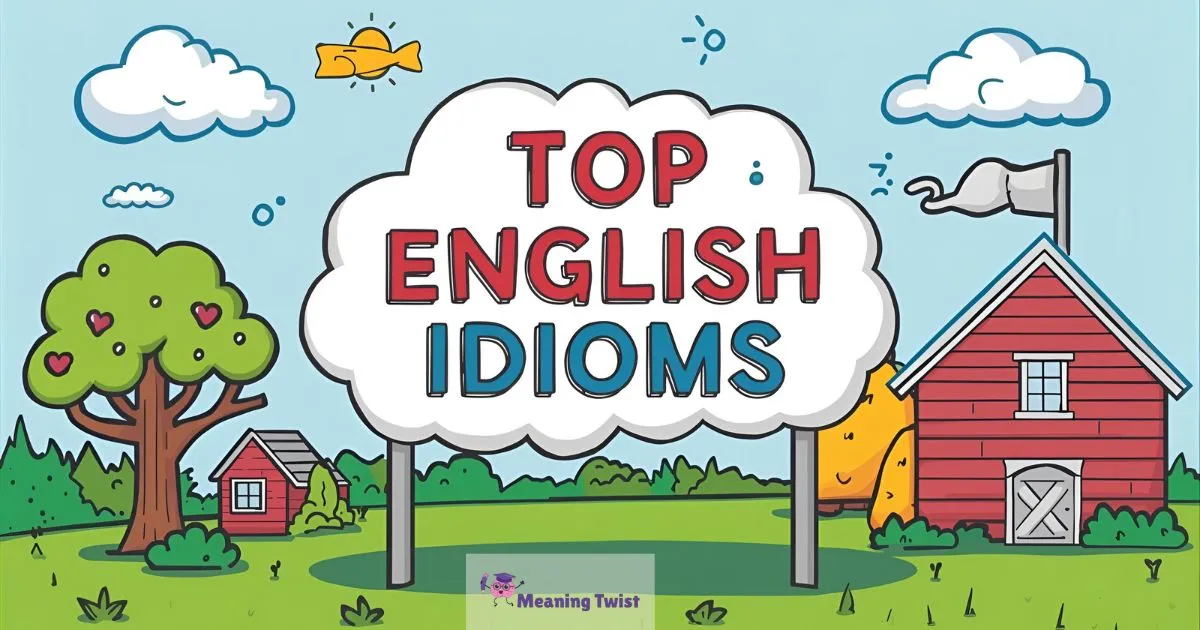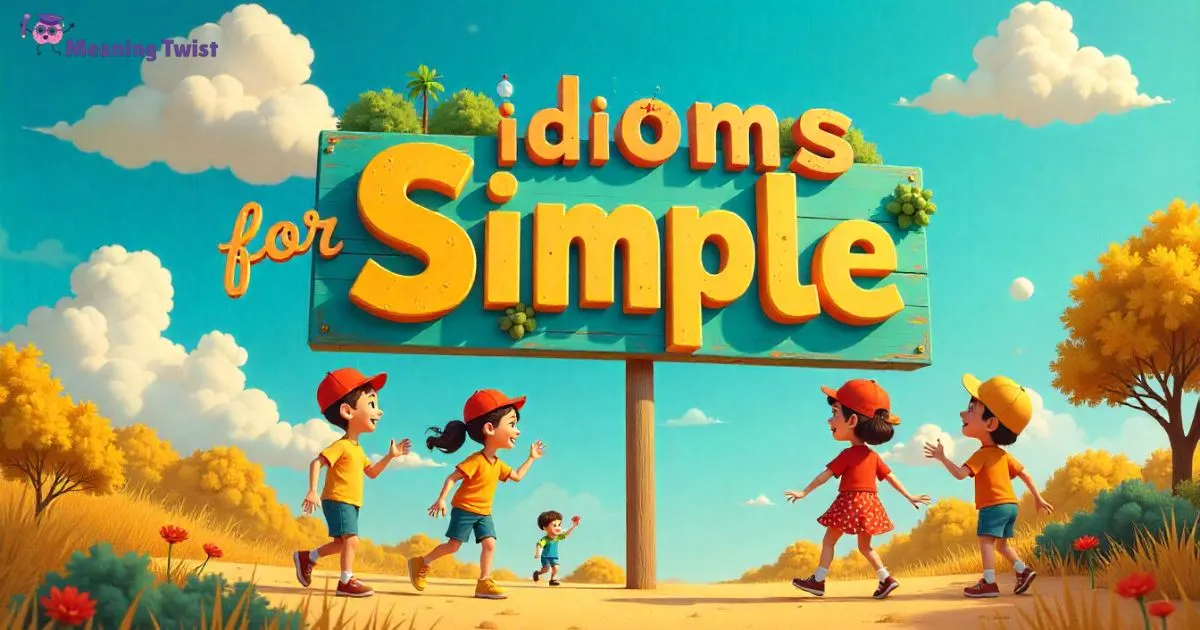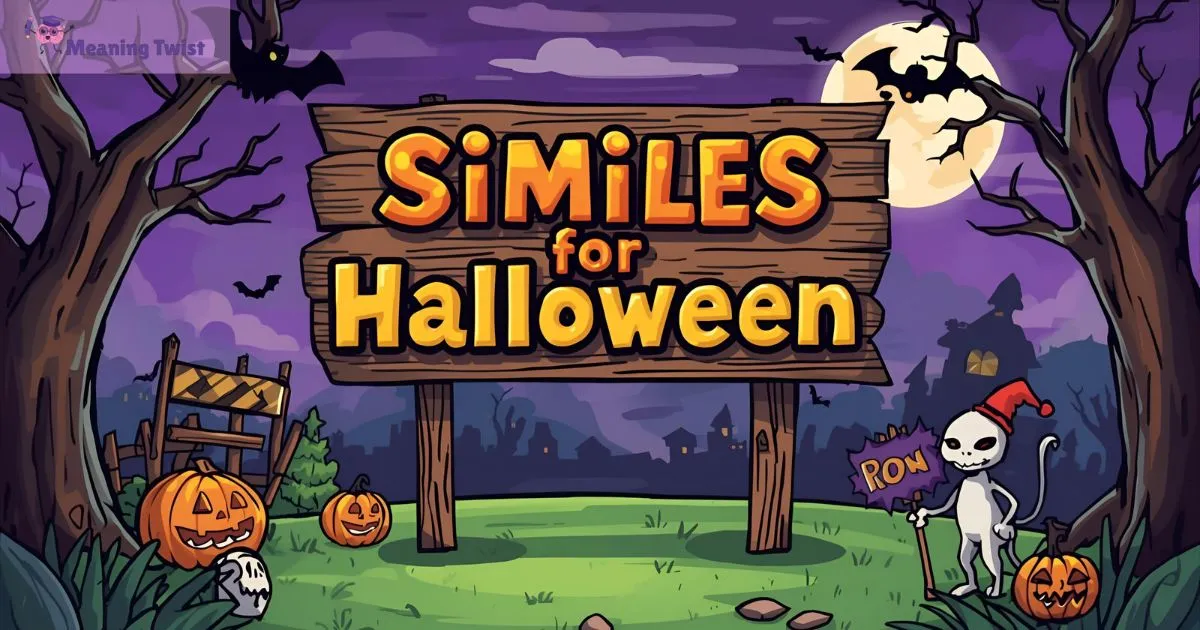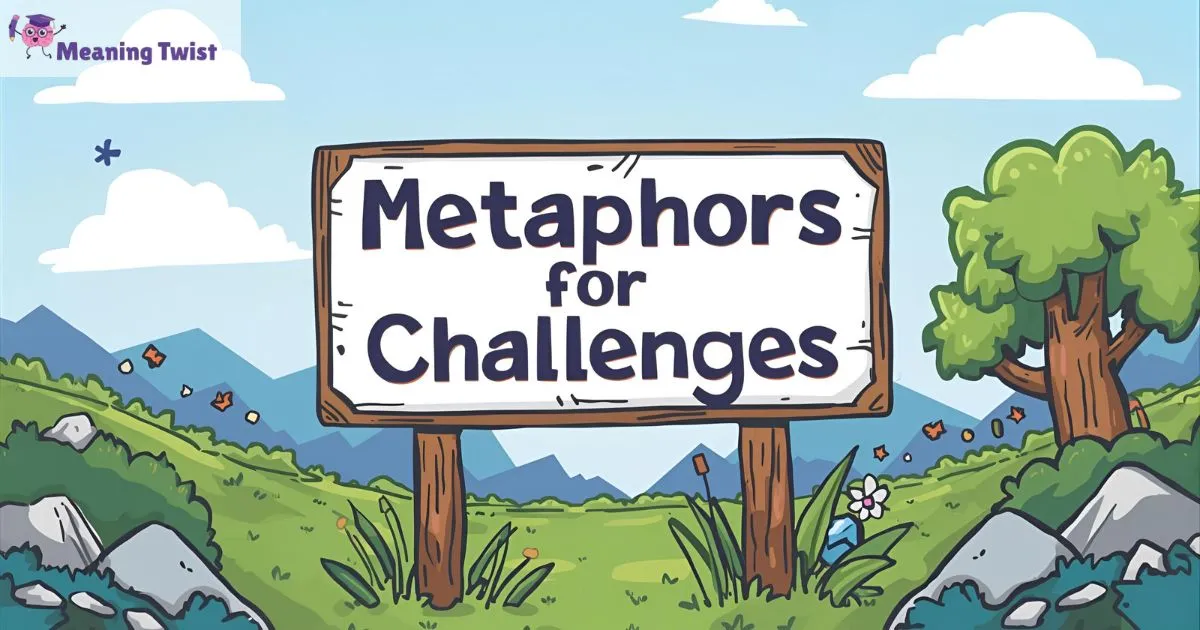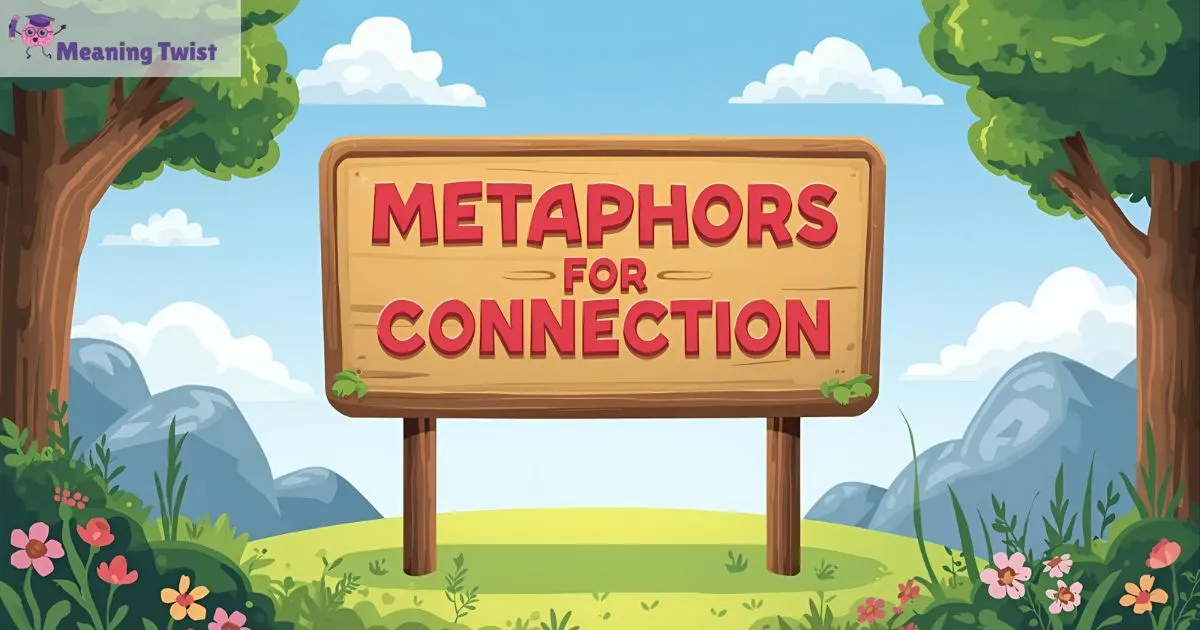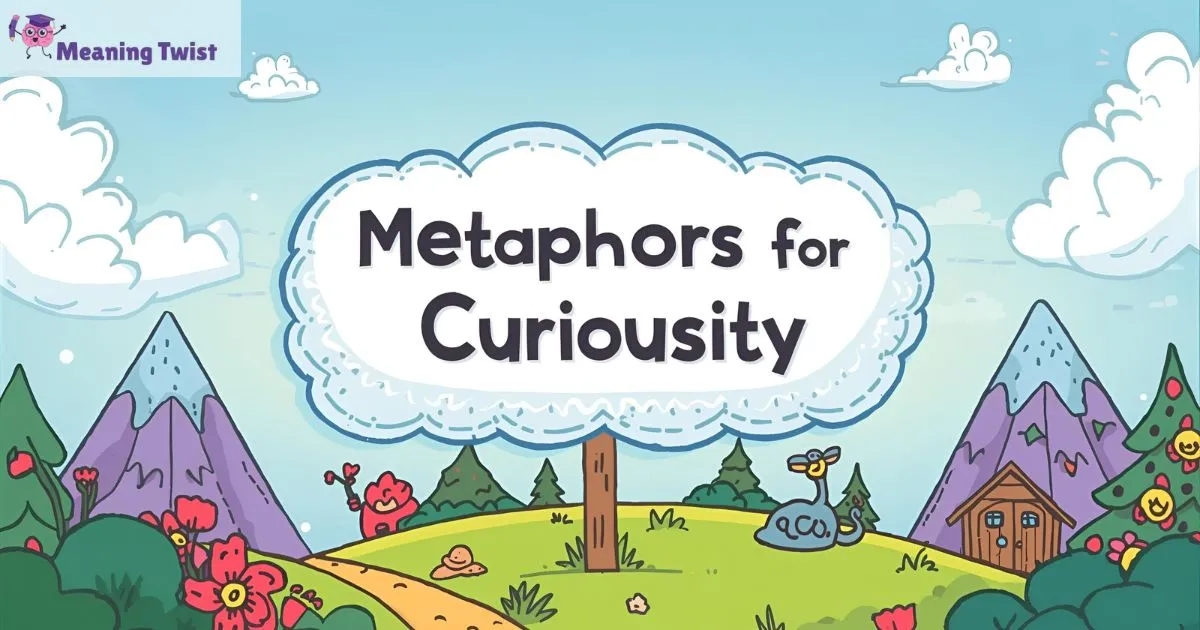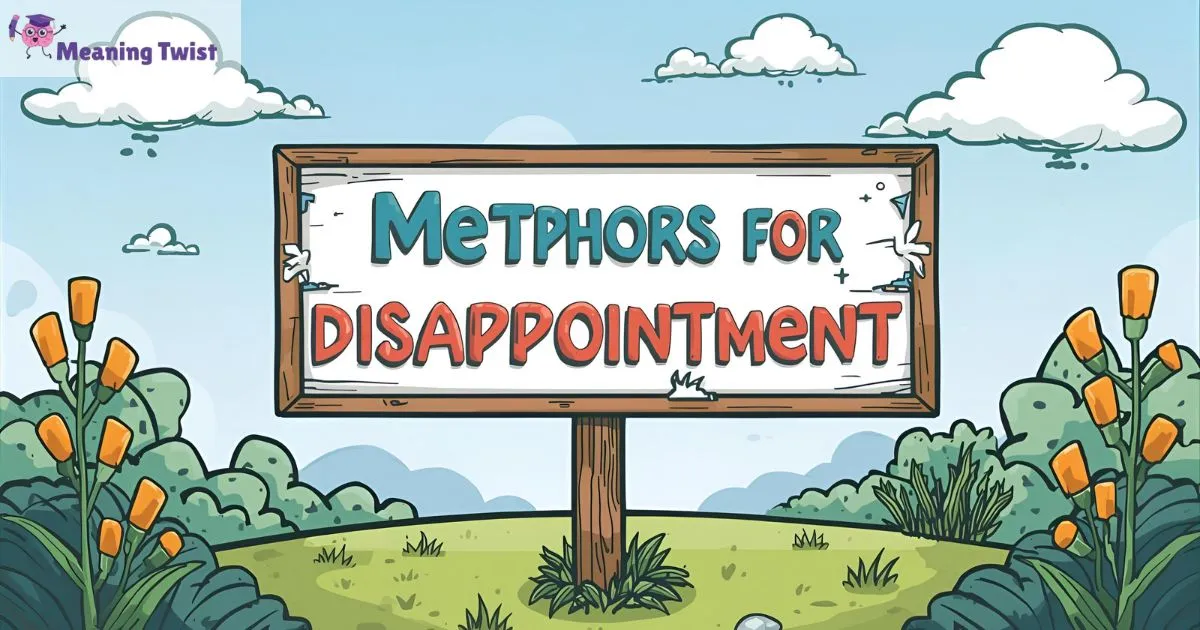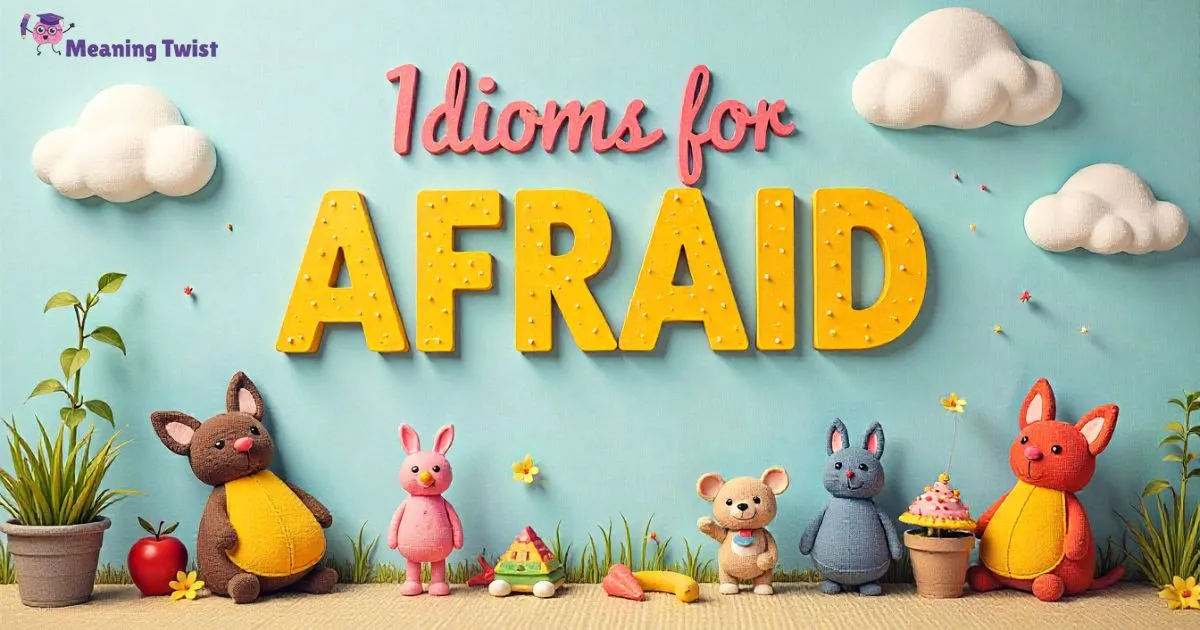
Everyone feels afraid sometimes — it’s part of being human. Whether it’s fear of failure, public speaking, or simply facing the unknown, fear shows up in all kinds of situations. But the way we express fear can make all the difference. That’s where idioms for afraid come in — they turn a basic emotion into something colorful, memorable, and even a bit humorous.
Instead of saying “I’m scared,” imagine saying “I’ve got cold feet” or “It sent shivers down my spine.” Instantly, your words carry more emotion and imagery, helping others truly feel what you’re describing. Idioms let you talk about fear in ways that are creative, relatable, and deeply expressive.
So go ahead — explore these idioms and try them in your conversations or writing. Whether you’re describing stage fright, sudden panic, or nervous anticipation, they’ll help you sound natural, fluent, and engaging.
Using idioms for afraid not only improves your English but also makes your speech more dynamic and human. They connect emotion with storytelling — so your listeners don’t just hear your fear, they feel it too.
1. Cold Feet
Meaning: Feeling nervous or hesitant about doing something.
Scenario: When someone gets scared right before an important event.
Tip: Perfect for describing last-minute fear or doubt.
Real-Life Example:
“She got cold feet just before her wedding day.”
2. Scared Stiff
Meaning: Extremely frightened or frozen with fear.
Scenario: When someone can’t move or react due to shock.
Tip: Use it for intense or sudden fear.
Real-Life Example:
“I was scared stiff when I heard strange noises outside.”
3. Shaking Like a Leaf
Meaning: Trembling or shaking due to fear.
Scenario: When someone’s body reacts physically to being afraid.
Tip: Great for describing visible fear.
Real-Life Example:
“He was shaking like a leaf before going on stage.”
4. Scared Out of My Wits
Meaning: Terrified or extremely frightened.
Scenario: When fear completely overwhelms you.
Tip: Use it in dramatic or storytelling contexts.
Real-Life Example:
“The horror movie scared me out of my wits.”
5. Hair Stood on End
Meaning: Feeling intense fear or chills.
Scenario: When something creepy or shocking happens.
Tip: Great for describing eerie situations.
Real-Life Example:
“My hair stood on end when I heard the ghost story.”
6. Jump Out of My Skin
Meaning: To be startled or shocked suddenly.
Scenario: When something scares you unexpectedly.
Tip: Best for sudden fright.
Real-Life Example:
“I almost jumped out of my skin when the balloon popped!”
7. Spine-Chilling
Meaning: Something that causes fear or terror.
Scenario: When describing scary movies or experiences.
Tip: Great for dramatic storytelling.
Real-Life Example:
“The haunted house tour was a spine-chilling experience.”
8. Frozen with Fear
Meaning: Unable to move because of fear.
Scenario: When fear completely paralyzes you.
Tip: Common in real fear reactions.
Real-Life Example:
“She stood frozen with fear when she saw the snake.”
9. Afraid of One’s Own Shadow
Meaning: Being easily frightened by anything.
Scenario: Used for people who scare easily.
Tip: Often said in a teasing or humorous tone.
Real-Life Example:
“He’s so jumpy, he’s afraid of his own shadow.”
10. Heart Missed a Beat
Meaning: Feeling sudden shock or fear.
Scenario: When something surprises or scares you.
Tip: Expresses instant emotional reaction.
Real-Life Example:
“My heart missed a beat when the car almost hit us.”
11. Break Into a Cold Sweat
Meaning: Sweating due to nervousness or fear.
Scenario: When fear triggers physical symptoms.
Tip: Ideal for high-stress situations.
Real-Life Example:
“He broke into a cold sweat before his job interview.”
12. Scared to Death
Meaning: Extremely terrified or panicked.
Scenario: When fear feels overwhelming.
Tip: Common in both serious and casual speech.
Real-Life Example:
“I was scared to death when I heard footsteps behind me.”
13. Goosebumps
Meaning: Small bumps on skin from fear or excitement.
Scenario: When something eerie or emotional happens.
Tip: Use to describe physical reactions to fear.
Real-Life Example:
“The story gave me goosebumps — it felt so real!”
14. Petrified
Meaning: So terrified that you can’t move or think.
Scenario: When fear completely freezes someone.
Tip: Can be used for both real and emotional fear.
Real-Life Example:
“I was petrified during my first airplane ride.”
15. In a Cold Sweat
Meaning: Sweating nervously from fear or anxiety.
Scenario: Before exams, speeches, or scary events.
Tip: Perfect for building tension in writing.
Real-Life Example:
“He woke up in a cold sweat after the nightmare.”
16. Get the Creeps
Meaning: Feeling uneasy or frightened.
Scenario: When something gives you a bad or eerie vibe.
Tip: Use it for mild fear or disgust.
Real-Life Example:
“That old, empty house gives me the creeps.”
17. Scared Out of My Mind
Meaning: Completely terrified or overwhelmed by fear.
Scenario: When facing something extremely scary.
Tip: Emphasizes intense emotion.
Real-Life Example:
“I was scared out of my mind during the thunderstorm.”
18. Quaking in My Boots
Meaning: Trembling with fear or nervousness.
Scenario: When someone feels deeply afraid or anxious.
Tip: Adds a comic or dramatic tone.
Real-Life Example:
“He was quaking in his boots before the interview.”
19. It Made My Blood Run Cold
Meaning: Something that caused deep fear or horror.
Scenario: When hearing shocking or terrifying news.
Tip: Great for storytelling or emotional depth.
Real-Life Example:
“The scream in the dark made my blood run cold.”
20. Butterflies in My Stomach
Meaning: Feeling nervous or anxious.
Scenario: Before important events like speeches or dates.
Tip: Common in positive nervousness.
Real-Life Example:
“I had butterflies in my stomach before my first performance.”
21. Frightened to the Core
Meaning: Deeply terrified or shaken.
Scenario: When fear affects you emotionally.
Tip: Use for dramatic emphasis.
Real-Life Example:
“The sudden explosion frightened me to the core.”
22. Make My Skin Crawl
Meaning: Something that makes you feel disgusted or scared.
Scenario: When something creepy or gross happens.
Tip: Perfect for creepy experiences.
Real-Life Example:
“The sight of spiders makes my skin crawl.”
23. Jumpy
Meaning: Easily startled or nervous.
Scenario: When someone reacts quickly to small sounds.
Tip: Often used casually.
Real-Life Example:
“After the accident, he’s been really jumpy.”
24. Panic-Stricken
Meaning: Overcome by sudden fear or panic.
Scenario: During emergencies or sudden crises.
Tip: Great for describing intense fear.
Real-Life Example:
“She was panic-stricken when she lost her child in the crowd.”
25. Trembling With Fear
Meaning: Physically shaking due to terror.
Scenario: When fear is uncontrollable.
Tip: Adds emotional realism to stories.
Real-Life Example:
“He stood there trembling with fear as the thunder roared.”
26. Frightened Out of My Skin
Meaning: Extremely terrified suddenly.
Scenario: When something shocks or scares you instantly.
Tip: Use it like “jump out of my skin.”
Real-Life Example:
“I was frightened out of my skin when the door slammed.”
27. A Nervous Wreck
Meaning: Being emotionally exhausted or stressed from fear.
Scenario: Before an important event or challenge.
Tip: Works well in emotional contexts.
Real-Life Example:
“I was a nervous wreck waiting for my exam results.”
28. Scare the Daylights Out of Me
Meaning: To frighten someone extremely.
Scenario: When something scares you badly.
Tip: Use it in funny or dramatic moments.
Real-Life Example:
“That loud bang scared the daylights out of me!”
29. Afraid for One’s Life
Meaning: Feeling fear for personal safety.
Scenario: Dangerous or life-threatening situations.
Tip: Use in serious contexts.
Real-Life Example:
“She was afraid for her life during the storm.”
30. Makes My Heart Race
Meaning: Feeling sudden fear or excitement.
Scenario: When adrenaline rushes through your body.
Tip: Works for both fear and thrill.
Real-Life Example:
“The roller coaster made my heart race with fear and excitement.”
Key Insight About Idioms for Afraid
1. What does “cold feet” mean?
It means feeling nervous or afraid before doing something important.
2. Which idiom shows mild fear?
Use “butterflies in my stomach” for light nervousness or anxiety.
3. What’s a strong idiom for terror?
“Scared stiff” or “petrified” show intense fear.
4. Which idiom fits a creepy feeling?
Try “it made my skin crawl” or “get the creeps.”
5. Can idioms make fear sound dramatic?
Yes — idioms like “hair stood on end” or “blood ran cold” add vivid imagery.
Final Word
Using idioms for afraid transforms simple fear into powerful, expressive language. They let you describe emotions vividly — from mild nervousness to pure terror. Each idiom adds color, emotion, and rhythm to your speech, making it sound truly natural.
So the next time you’re scared, don’t just say “I’m afraid.” Try saying “I was shaking like a leaf” or “My blood ran cold.” These expressions make your words alive, relatable, and unforgettable.
You’re not alone if you’ve ever felt scared, nervous, or unsure—everyone feels that way sometimes. Learning idioms for afraid helps you talk about those feelings in fun, expressive ways. Whether you’re at school, chatting with friends, or sharing a story at home, these idioms make big emotions easier to explain.

Hi, I am Joey, the admin of meaningtwist.com. I simplify deep meanings and twist ordinary words into extraordinary insights to spark your curiosity and clicks!

